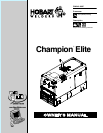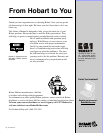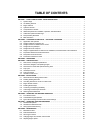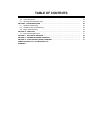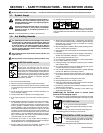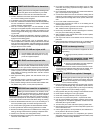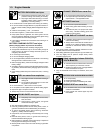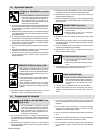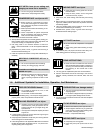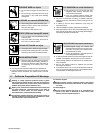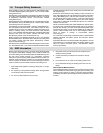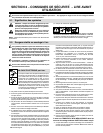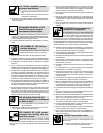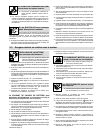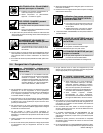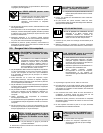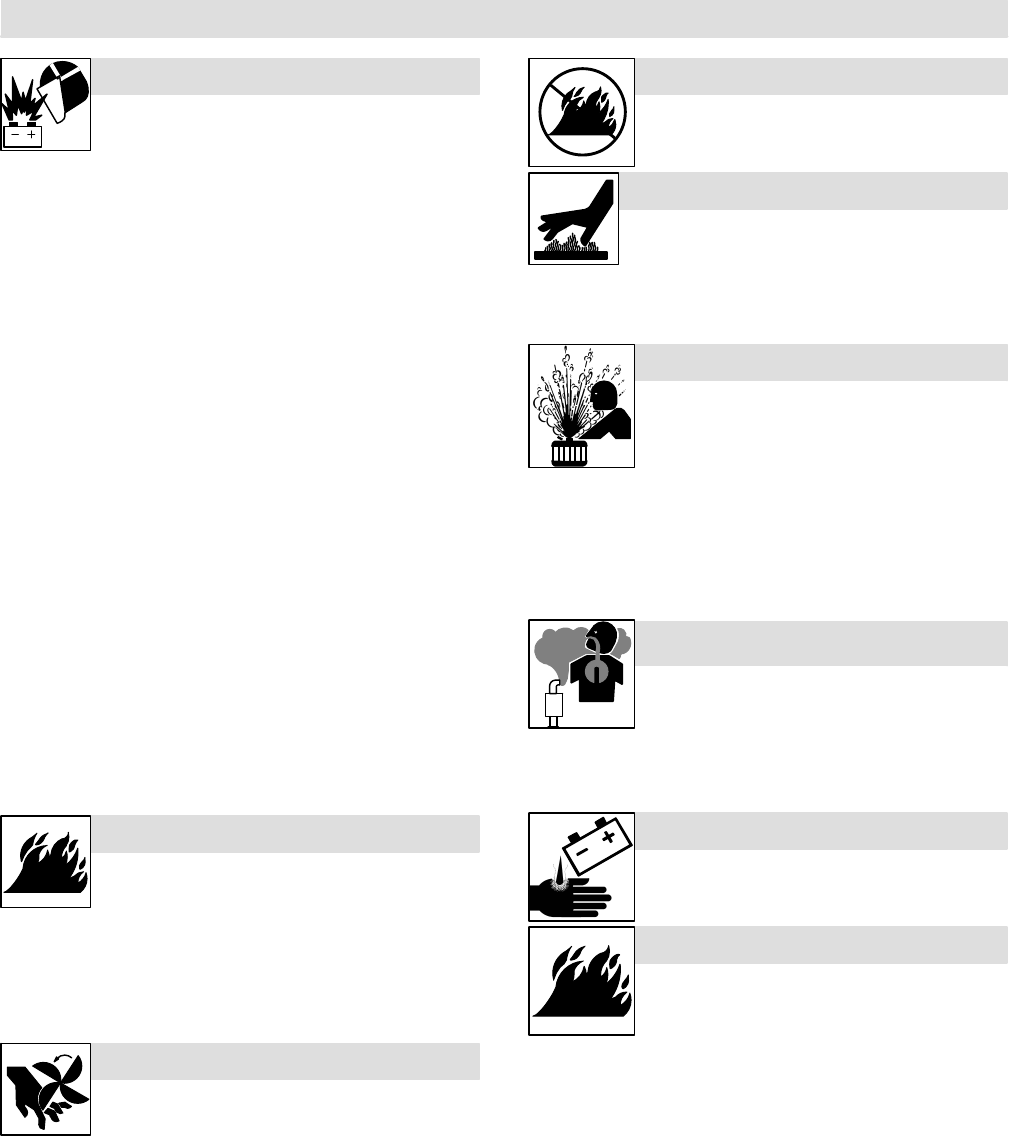
OM-240 438 Page 3
1-3. Engine Hazards
BATTERY EXPLOSION can injure.
D Always wear a face shield, rubber gloves, and
protective clothing when working on a battery.
D Stop engine before disconnecting or connect-
ing battery cables, battery charging cables (if
applicable), or servicing battery.
D Do not allow tools to cause sparks when working on a battery.
D Do not use welder to charge batteries or jump start vehicles un-
less the unit has a battery charging feature designed for this pur-
pose.
D Observe correct polarity (+ and −) on batteries.
D Disconnect negative (−) cable first and connect it last.
D Keep sparks, flames, cigarettes, and other ignition sources
away from batteries. Batteries produce explosive gases during
normal operation and when being charged.
D Follow battery manufacturer’s instructions when working on or
near a battery.
BATTERY CHARGING OUTPUT can injure.
(Battery charging feature not present on all models.)
D Have only qualified persons do battery charging work.
D Charge lead-acid batteries only. Do not use battery charger to
supply power to an extra-low-voltage electrical system or to
charge dry cell batteries.
D Do not charge a frozen battery.
D Do not use damaged charging cables.
D Do not charge a battery that has loose terminals or one showing
damage such as a cracked case or cover.
D Before charging battery, select correct charger voltage to match
battery voltage.
D Set battery charging controls to the Off position before connect-
ing to battery. Do not allow battery charging clips to touch each
other.
D Keep charging cables away from vehicle hood, door, or moving
parts.
FUEL can cause fire or explosion.
D Stop engine and let it cool off before checking or
adding fuel.
D Do not add fuel while smoking or if unit is near
any sparks or open flames.
D Do not overfill tank — allow room for fuel to expand.
D Do not spill fuel. If fuel is spilled, clean up before starting engine.
D Dispose of rags in a fireproof container.
D Always keep nozzle in contact with tank when fueling.
MOVING PARTS can injure.
D Keep away from moving parts such as fans,
belts, and rotors.
D Keep all doors, panels, covers, and guards
closed and securely in place.
D Stop engine before installing or connecting unit.
D Have only qualified persons remove doors, panels, covers, or
guards for maintenance and troubleshooting as necessary.
D To prevent accidental starting during servicing, disconnect
negative (−) battery cable from battery.
D Keep hands, hair, loose clothing, and tools away from moving
parts.
D Reinstall doors, panels, covers, or guards when servicing is
finished and before starting engine.
D Before working on generator, remove spark plugs or injectors to
keep engine from kicking back or starting.
D Block flywheel so that it will not turn while working on generator
components.
EXHAUST SPARKS can cause fire.
D Do not let engine exhaust sparks cause fire.
D Use approved engine exhaust spark arrestor in
required areas — see applicable codes.
HOT PARTS can burn.
D Do not touch hot parts bare handed.
D Allow cooling period before working on equip-
ment.
D To handle hot parts, use proper tools and/or
wear heavy, insulated welding gloves and
clothing to prevent burns.
STEAM AND HOT COOLANT can burn.
D If possible, check coolant level when engine is
cold to avoid scalding.
D Always check coolant level at overflow tank, if
present on unit, instead of radiator (unless told
otherwise in maintenance section or engine
manual).
D If the engine is warm, checking is needed, and there is no over-
flow tank, follow the next two statements.
D Wear safety glasses and gloves and put a rag over radiator cap.
D Turn cap slightly and let pressure escape slowly before
completely removing cap.
Using a generator indoors CAN KILL
YOU IN MINUTES.
D Generator exhaust contains carbon monoxide.
This is a poison you cannot see or smell.
D NEVER use inside a home or garage, EVEN IF
doors and windows are open.
D Only use OUTSIDE and far away from windows, doors, and
vents.
BATTERY ACID can BURN SKIN and EYES.
D Do not tip battery.
D Replace damaged battery.
D Flush eyes and skin immediately with water.
ENGINE HEAT can cause fire.
D Do not locate unit on, over, or near combustible
surfaces or flammables.
D Keep exhaust and exhaust pipes way from
flammables.



